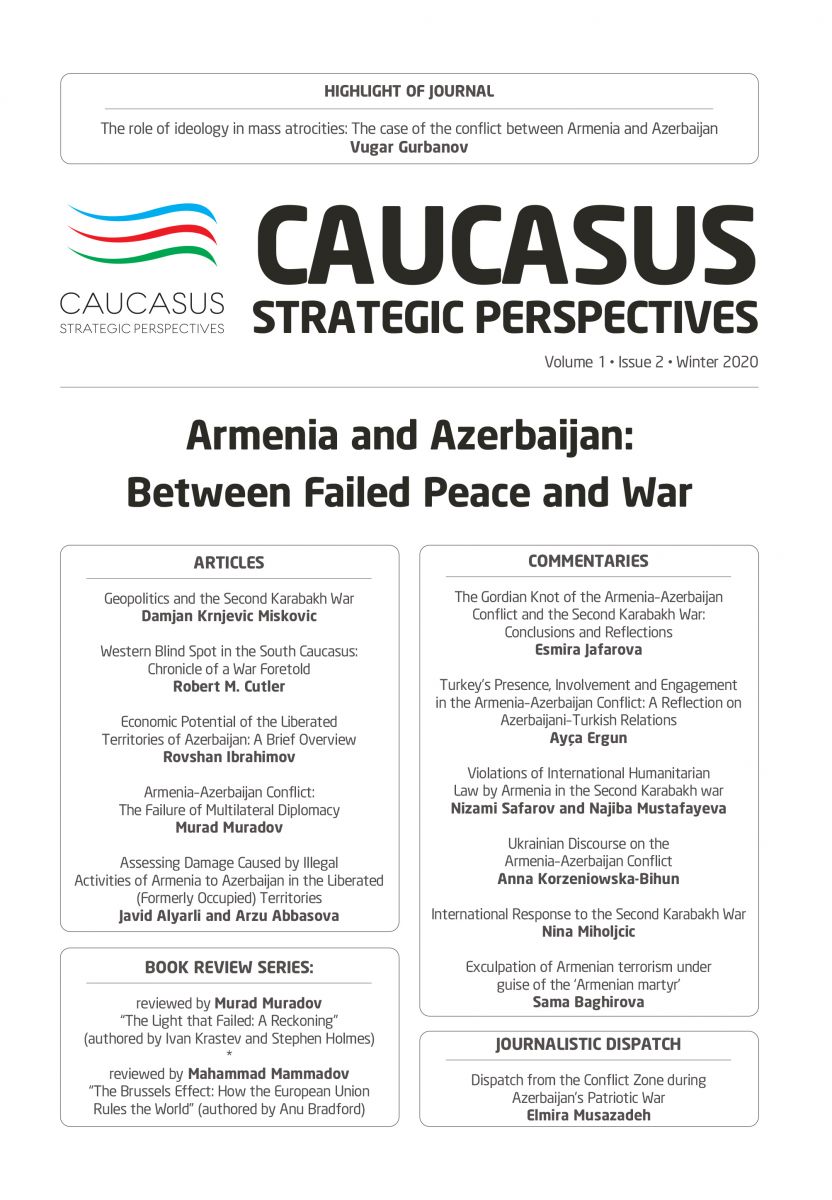The role of ideology in mass atrocities: The case of the conflict between Armenia and Azerbaijan
This article attempts to explore the ideological aspects of the Armenia–Azerbaijan conflict by focusing on mainstream Armenian concepts. Its main argument is that the nationalist Armenian ideology provides a substantial answer to the exercised brutality. It draws on theoretical concepts including the role of ideology in perpetrating violence and looks into the main concepts of Armenian nationalism; these include the construction of “the enemy” and its image. The particular focus is on Garegin Nzhdeh’s ideas, which have constituted the bedrock of Armenian ideology since independence in 1991. The peculiarity of Nzhdeh’s vision is that some of his pertinent ideas were “successfully” tested in Zangezur in 1920. Against this ideological background, the article then presents two case studies from the military phase of the conflict which show that the brutality exercised went beyond military necessities and targeted the civilian population. The article concludes that Armenia’s exclusionary ideology, with its indiscriminate “enemy” concept, played a key role in producing brutality on a massive scale against those deemed “guilty
Latest news
- 12/27/2024 Call for Submissions-Caucasus Strategic Perspectives, Volume 6, Issue 1, Summer 2025 667 views
Popular articles
- 07/18/2022 The Russia–Ukraine War: Perspective of Azerbaijan 4322 views
- 10/14/2020 The Non-Aligned Movement: In Pursuit of Validity and Relevance in the Contemporary Global Order 3307 views
- 10/14/2020 Vicious Circle of the South Caucasus: Intra-Regional Conflicts and Geopolitical Heterogeneity 3290 views
- 10/14/2020 Relevance of Non-Alignment for Azerbaijan’s Foreign and Security Policy 3019 views





